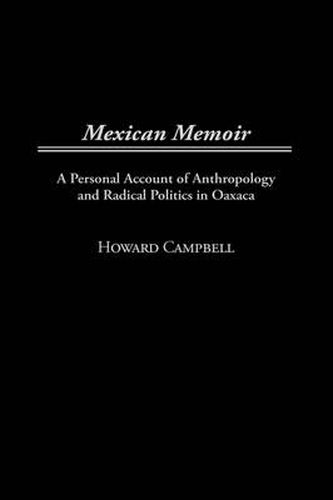Readings Newsletter
Become a Readings Member to make your shopping experience even easier.
Sign in or sign up for free!
You’re not far away from qualifying for FREE standard shipping within Australia
You’ve qualified for FREE standard shipping within Australia
The cart is loading…






Ensconced in the tight kinship network of a local household in Oaxaca, Mexico, the author embarked on a challenging study of a radical ethnic political movement, COCEI. An anthropologist who married a Zapotec Women, the author chronicles his fieldwork in this memoir. His research is interwoven with his personal experiences, addressing the political and ethical dilemmas of contemporary ethnography. Campbell’s informants are internationally known politicians, poets, and painters who live in Juchitan, a large city controlled by indigenous activists.
While adopting aspects of the postmodern critique of ethnography, the author proposes and illustrates a collaborative form of research based on partisan political commitment. Through a candid and intimate account, he portrays his informants and research site, and his direct involvement in Zapotec society. The book is both a highly readable ethnography of Southern Mexico and a contribution to debates about current anthropology.
$9.00 standard shipping within Australia
FREE standard shipping within Australia for orders over $100.00
Express & International shipping calculated at checkout
Ensconced in the tight kinship network of a local household in Oaxaca, Mexico, the author embarked on a challenging study of a radical ethnic political movement, COCEI. An anthropologist who married a Zapotec Women, the author chronicles his fieldwork in this memoir. His research is interwoven with his personal experiences, addressing the political and ethical dilemmas of contemporary ethnography. Campbell’s informants are internationally known politicians, poets, and painters who live in Juchitan, a large city controlled by indigenous activists.
While adopting aspects of the postmodern critique of ethnography, the author proposes and illustrates a collaborative form of research based on partisan political commitment. Through a candid and intimate account, he portrays his informants and research site, and his direct involvement in Zapotec society. The book is both a highly readable ethnography of Southern Mexico and a contribution to debates about current anthropology.